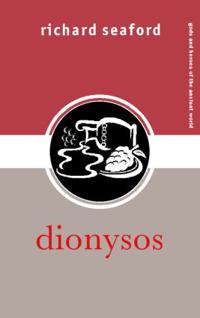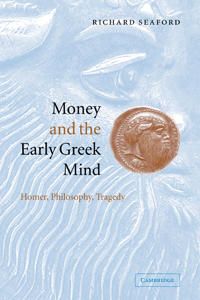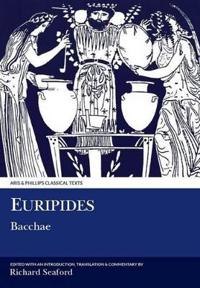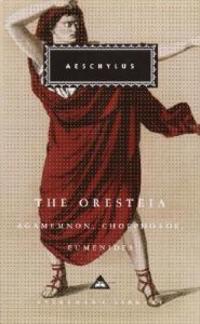Dionysos (Storpocket)
avRichard Seaford
ISBN: 9780415324885 - UTGIVEN: 200606Covering a wide range of issues which have been overlooked in the past, including mystery, cult and philosophy, Richard Seaford explores Dionysos - one of the most studied figures of the ancient Greek gods. Popularly known as the god of wine and frenzied abandon, and an influential figure for theatr[...]
Money and the Early Greek Mind (Häftad)
avRichard Seaford
ISBN: 9780521539920 - UTGIVEN: 200403How were the Greeks of the sixth century BC able to invent philosophy and tragedy? In this book Richard Seaford argues that a large part of the answer can be found in another momentous development, the invention and rapid spread of coinage which produced the first ever thoroughly monetised society. [...]
Bacchae (Pocket)
avRichard Seaford
ISBN: 9780856686092 - UTGIVEN: 1996-12This is a commentary on "Bacchae", by Euripides. It takes account of the studies made on the play since it was written, as well as the discoveries made about the cult of Dionysus. The author has already published widely on both the "Bacchae" and the Dionysus cult.[...]
The Oresteia: Agamemnon, Choephoroe, Eumenides (Inbunden)
avAeschylus, Richard Seaford
ISBN: 9781400041923 - UTGIVEN: 2004-01One of the founding documents of Western culture and the only surviving ancient Greek trilogy, the Oresteia of Aeschylus is one of the great tragedies of all time.
The three plays of the Oresteia portray the bloody events that follow the victorious return of King Agamemnon from the Trojan War, a[...]Foragers, Farmers, and Fossil Fuels (Inbunden)
avIan Morris, Stephen (EDT) Macedo, Richard (CON) Seaford
ISBN: 9780691160399 - UTGIVEN: 2015-03Most people in the world today think democracy and gender equality are good, and that violence and wealth inequality are bad. But most people who lived during the 10,000 years before the nineteenth century thought just the opposite. Drawing on archaeology, anthropology, biology, and history, Ian Mor[...]







